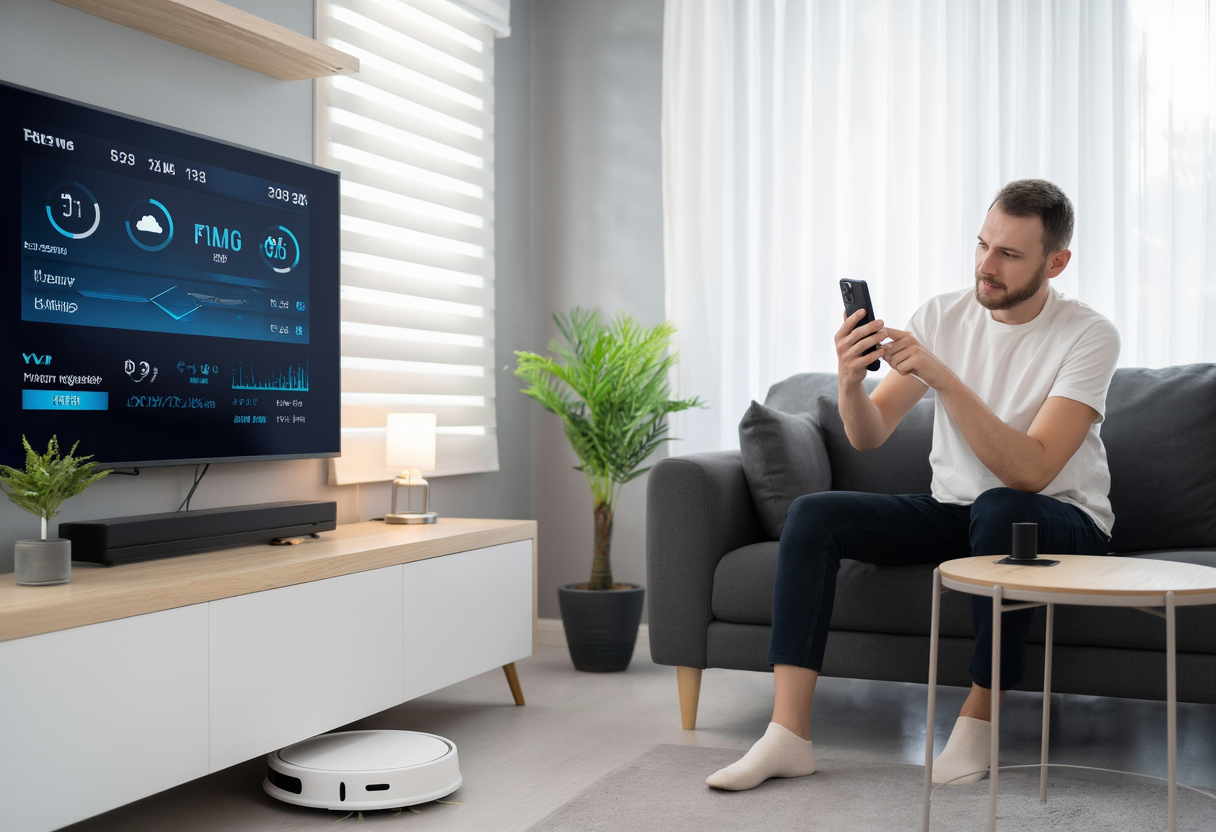The Future of Smart Home Devices: Are You Ready to Embrace the Change?
As technology continues to evolve, Smart Home Devices are becoming a cornerstone of modern living. These gadgets not only provide convenience but also enhance security and energy efficiency. Discover the transformative impact of these devices and how they shape our daily routines. Are you prepared to integrate these innovations into your home for a smarter lifestyle?
The Rise of Smart Home Devices
In recent years, Smart Home Devices have surged in popularity, becoming an essential part of contemporary households. Initially seen as luxury items, these gadgets are now perceived as necessities that simplify everyday tasks. From intelligent thermostats that adjust to your preferences to smart security cameras that monitor your home remotely, the capabilities of Smart Home Devices are virtually limitless. Moreover, technology advancements have led to their increased affordability, making them accessible to a broader audience. The rapid integration of the Internet of Things (IoT) has further amplified this trend, allowing various devices to communicate seamlessly with each other. With this interconnectedness, users experience unprecedented levels of convenience, efficiency, and security, fundamentally changing the way we live. However, with every technological leap, new challenges arise, prompting debates about privacy, data security, and the digital divide. It's crucial to navigate these discussions carefully as we embrace the inevitable march of Smart Home Devices into our lives.
Enhancing Security with Smart Home Devices
Security is one of the paramount concerns for homeowners, and Smart Home Devices offer innovative solutions to tackle these challenges. Smart locks, for instance, allow homeowners to secure their premises remotely, ensuring peace of mind when away from home. Furthermore, video doorbells enable users to monitor who approaches their door, providing an extra layer of vigilance. Alarm systems connected to Smart Home Devices can alert homeowners directly through their smartphones, allowing for immediate response in case of emergencies. Importantly, these devices often integrate AI capabilities, learning user patterns to distinguish between normal activity and potential threats, thereby minimizing false alarms. In a world where intrusion and burglary rates remain significant concerns, embracing Smart Home Devices for security is a proactive strategy. However, enhancing security also means acknowledging the potential for cyber threats, urging manufacturers to prioritize robust encryption and privacy measures in their devices.
Energy Efficiency and Smart Home Devices
Energy consumption is a pressing issue globally, and Smart Home Devices play a vital role in promoting efficiency. Smart thermostats, such as those produced by Nest and Ecobee, allow users to monitor and control heating and cooling systems remotely. These devices learn user habits and adjust temperatures accordingly, drastically reducing energy waste. Additionally, smart lighting systems can be programmed to turn off automatically when a room is unoccupied. By utilizing Smart Home Devices in these ways, consumers not only save money on energy bills but also contribute to a more sustainable future. Furthermore, some utility companies offer incentives for using these devices, making the transition even more appealing. However, it's important to balance convenience with responsibility, ensuring that while SMART technology optimizes usage, it does not inadvertently lead to complacency regarding energy conservation practices.
The User Experience with Smart Home Devices
User experience is at the core of the Smart Home Devices revolution. The convenience of controlling multiple devices from a single app cannot be overstated, as it streamlines interactions and enhances satisfaction. As consumers increasingly prioritize ease of use, manufacturers are tasked with creating intuitive interfaces that cater to all demographics, including those less familiar with technology. Voice-activated assistants, like Amazon's Alexa and Google Assistant, further enrich this experience by allowing hands-free control of various functions. However, while the user experience is often positive, issues of compatibility between different brands and devices can frustrate users. Continuous updates and customer feedback are essential for companies aiming to refine their products. As the market evolves, user experience will dictate the success of Smart Home Devices, making it imperative for brands to prioritize this aspect in their design processes.
Cultural Adaptation and Smart Home Devices
The adoption of Smart Home Devices varies significantly across cultures, reflecting differing values, living standards, and technological readiness. In urban environments, where space is limited, devices that optimize functionality, such as smart compact appliances, see more popularity, demonstrating how cultural context shapes technology usage. In contrast, rural areas might prioritize devices that enhance security due to geographic isolation. Understanding these cultural nuances is crucial for companies developing smart technology. Moreover, marketing strategies must be localized to resonate with potential consumers effectively. As we bridge cultural divides, Smart Home Devices will not only cater to the universal desire for convenience but also celebrate the richness of diverse user experiences. This cultural adaptability is a unique opportunity for brands to make a lasting impact globally.
Conclusion: Smart Home Devices and the Tomorrow Ahead
As we step into an increasingly digital future, Smart Home Devices will undoubtedly play a pivotal role in shaping our lives. The benefits they offer – from enhanced security and energy efficiency to improved user experiences – underline their significance. However, as we embrace these innovations, we must remain vigilant regarding the accompanying challenges, particularly those related to privacy and security. The collaboration of manufacturers, consumers, and policymakers will be vital to navigate these complexities effectively. Ultimately, the journey with Smart Home Devices is not merely about adopting technology; it's about creating a smarter, safer, and more connected world that enhances our daily lives.
content
